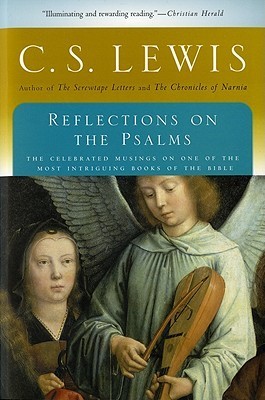What do you think?
Rate this book


151 pages, Paperback
First published January 1, 1958
And what are we to say of those gods in various Pagan mythologies who are killed and rise again and who thereby renew or transform the life of their worshippers [sic] or of nature? The odd thing is that here those anthropologists who are most hostile to our faith would agree with many Christians in saying "The resemblance is not accidental". Of course the two parties would say this for different reasons. The anthropologists would mean: "All these superstitions have a common source in the mind and experience, especially the agricultural experience, of early man. Your myth of Christ is like the myth of Balder because it has the same origin. The likeness is a family likeness." The Christians would fall into two schools of thought. The early Fathers (or some of them), who believed that Paganism was nothing but the direct work of the Devil, would say: "The Devil has from the beginning tried to mislead humanity with lies. As all accomplished liars do, he makes his lies as like the truth as he can; provided they lead man astray on the main issue, the more closely they imitate truth the more effective they will be. That is why we call him God's Ape; he is always imitating God. The resemblance of Adonis to Christ is therefore not at all accidental; it is the resemblance we expect to find between a counterfeit and the original, between imitation pearls and pearls." Other Christians who think, as I do, that in mythology divine and diabolical and human elements (the desire for a good story), all play a part, would say: "It is not accidental. In the sequence of night and day, in the annual death and rebirth of crops, in the myths which these processes gave rise to, in the strong, if half-articulate, feeling (embodied in many Pagan 'Mysteries') that man himself must undergo some sort of death if he would truly live, there is already a likeness permitted by God to that truth on which all depends. The resemblance between these myths and the Christian truth is no more accidental than the resemblance between the sun and the sun's reflection in a pond, or that between a historical fact and the somewhat garbled version of it which lives in popular report, or between the trees and hills of the real world and the trees and hills in our dreams." Thus all three views alike would regard the "Pagan Christs" and the true Christ as things really related and would find the resemblance significant. [pp. 105-107]
For the Supernatural, entering a human soul, opens to it new possibilities both of good and evil. From that point the road branches: one way to sanctity, love, humility, the other to spiritual pride, self-righteousness, persecuting zeal. And no way back to the humdrum virtues of the unawakened soul. If the Divine call does not make us better, it will make us much worse. Of all bad men religious bad men are the worst.~ from The Cursings